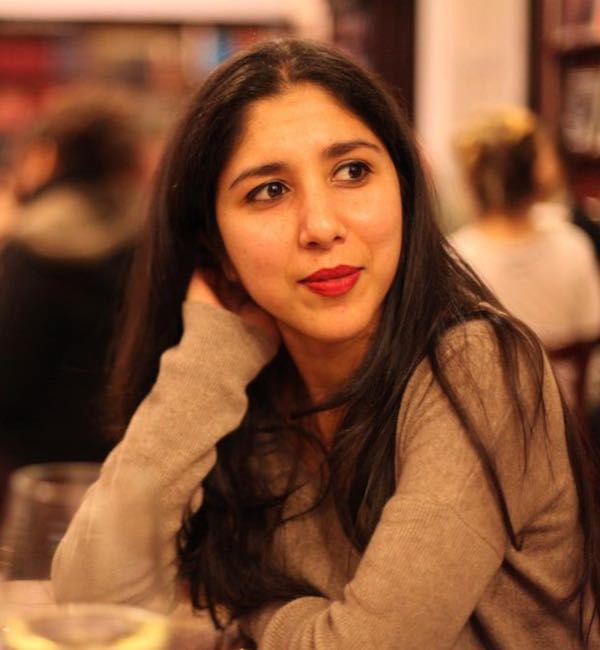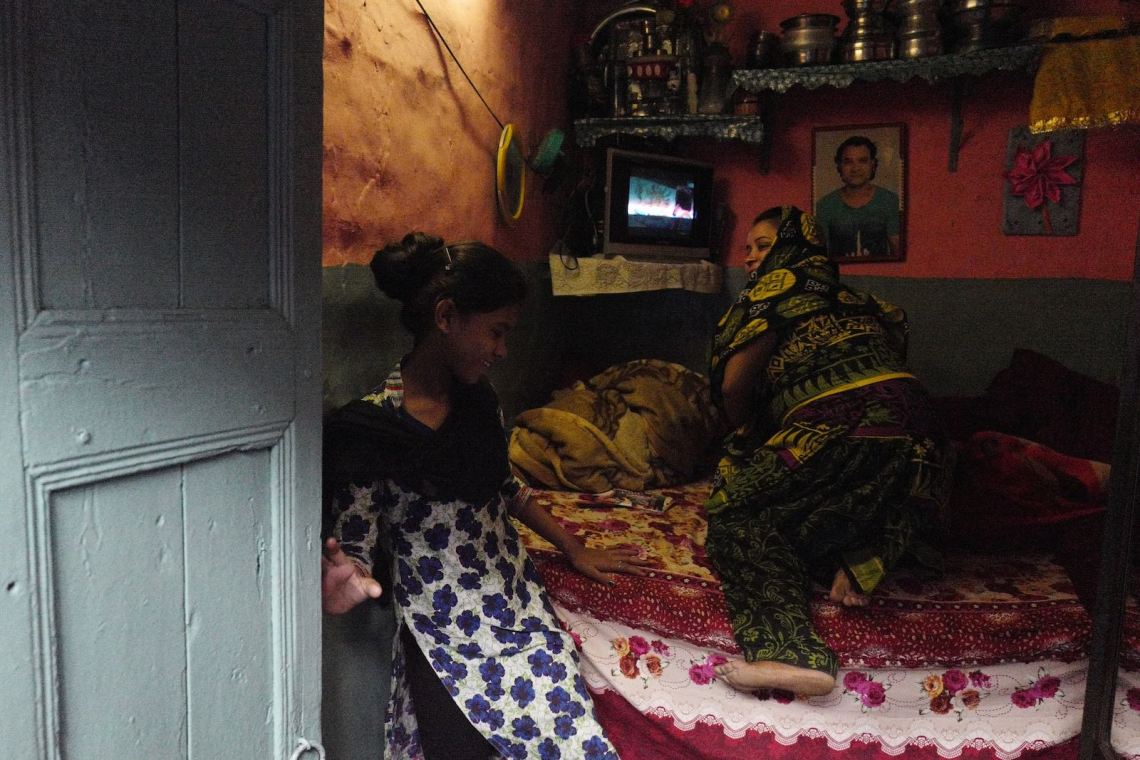On September 14, 2020, we published a photo-essay by Buku Sarkar, “Sharmila, the Chaiwalla, and Me,” in which, in text and images, she opens a window into the lives of people who are virtually her neighbors in Calcutta yet inhabit another world, in a slum, known as Basti. As she follows her photographic subjects, she finds herself not only drawn into relationships with them, but in demand as their “Photowali Didi,” their photographer-sister.
Sarkar’s project—the work of several years spent in Calcutta when a long spell of debilitating but undiagnosed illness forced her to move back in with her parents—will appear in book form next year from Fall Line Press, an Atlanta-based art publisher. But Sarkar, who now divides her time between Calcutta and New York City, told me via email this week that she’s returned to writing fiction with such vigor that “in fact, I haven’t held my camera in a year.”
That, too, is bearing fruit: she has finished a collection of short stories and found an agent for it. If this sounds all too charmed and good to be true, rest assured: Sarkar’s path was not always so smooth.
She does, it is true, come from a high-achieving family. Her father, Aveek Sarkar, is a former newspaper editor and now the proprietor of a media empire; her sister, Chiki, became the head of Penguin Randomhouse in India before setting up her own publishing company, Juggernaut Books. But Buku was never quite with the program.
“Till the age of fourteen, I wanted to be a tennis player. I trained every day,” she told me. “But by the time I was old enough to travel to tournaments, I realized I was not ready to make the kind of sacrifices one has to, in order to be a professional athlete.”
She did not know her direction after that, and under parental pressure to apply for college, rather randomly picked NYU, having once visited the city as a child. But she was still in revolt against the liberal arts, and instead went to the Stern School of Business—rebelling through conformity. Except that conforming was not her thing, either: “Well, in one year, it became pretty obvious that I did not fit in with my fellow classmates, who came in suits and ties, while I had other priorities—such as getting my tongue pierced.”
She dropped out of NYU and went to work for Overlook Press, the late Peter Mayer’s publishing house, for a spell, tended bar for a couple of years, and ended up “running a magazine distribution service for Indians living in the US.” Meanwhile, “I married the man I had been living with since my NYU days, and then eventually, when wisdom hit me at thirty, I left him.”
She went back to college at last to get a degree, at The New School, in 2007. “I loved the classes, I adored my teachers,” she said, and it was there that she realized she “was going to be writing fiction.” A master’s degree in creative writing at the University of East Anglia followed. “In the UK, I noticed how similar some habits—be it of speech or having afternoon tea—were to those of India, and that had me a little puzzled at first,” she said. “I often wondered who was influenced by whom.”
It was around that time, on a family holiday, that she confessed her new vocation to her sister—her sister the high-flying book publisher: “She looked at me, horrified, and said, ‘You want to be a novelist?’ I felt smaller than an ant at that moment. It was like coming out of the closet.”
Presumably, her family has come to terms with the shock and the shame. In any case, Buku persists in rebelling. “I’m writing more short stories, essays…wrote half of a memoir during the lockdown, but I didn’t realize how painful it would be to write about my days of being ill, so it’s taking longer than I thought,” she said. “I’m supposed to start a novel soon, but every day that I think about it, I just write another short story. I’m sort of dreading that first jump in.”



